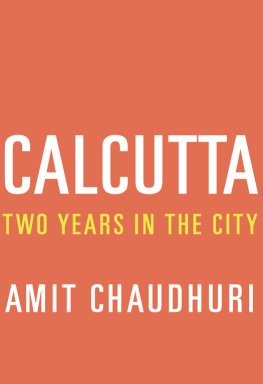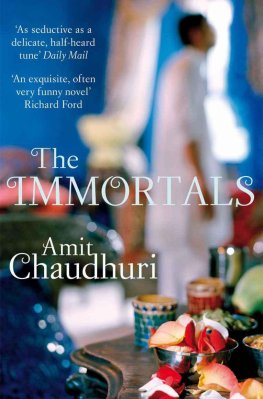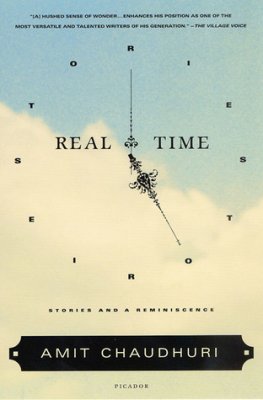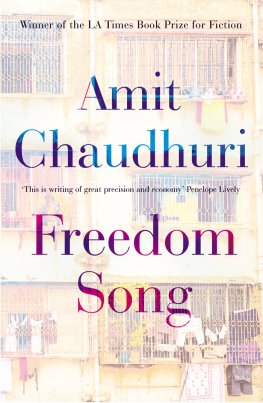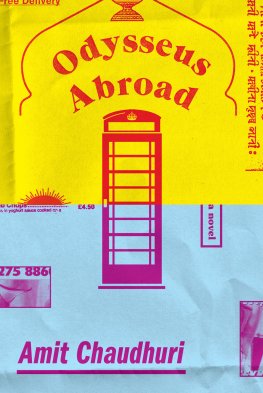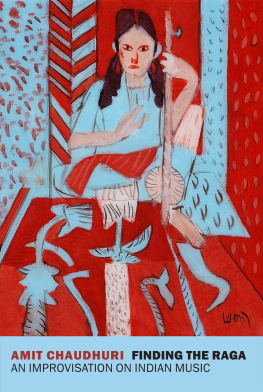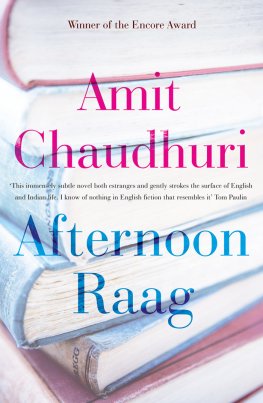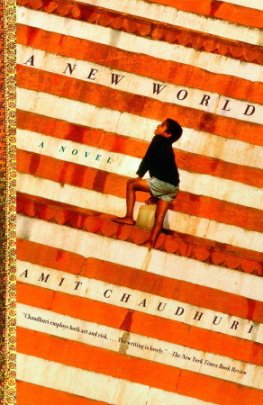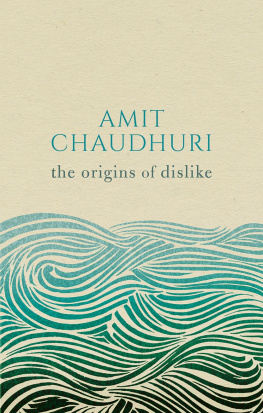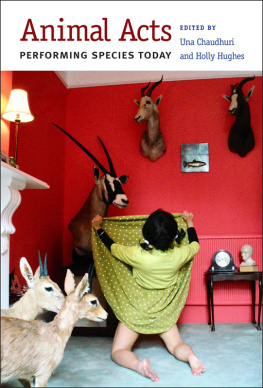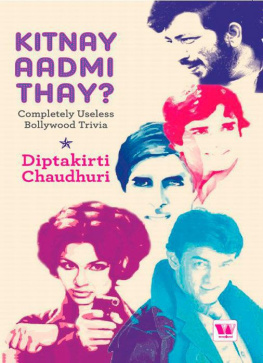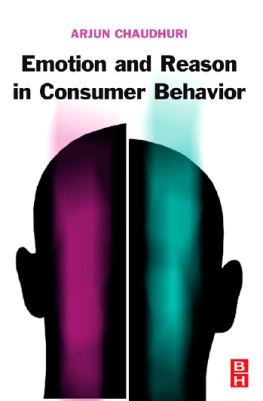Amit Chaudhuri
Calcutta: Two Years in the City
Think of the long trip home.
Should we have stayed at home and thought of here?
Where should we be today?
Is it right to be watching strangers in a play
in this strangest of theatres?
What childishness is it that while theres a breath of life
in our bodies, we are determined to rush
to see the sun the other way around?
The tiniest green hummingbird in the world?
To stare at some inexplicable old stonework
inexplicable and impenetrable,
at any view,
instantly seen and always, always delightful?
Oh, must we dream our dreams
and have them, too?
And have we room
for one more folded sunset, still quite warm?
Elizabeth Bishop, Questions of Travel
By modernity I mean the ephemeral, the fugitive, the contingent, the half of art whose other half is the eternal and the immutable.
Charles Baudelaire, The Painter of Modern Life
It was probably three years ago that the poet Utpal Kumar Basu reported to me a couple of observations hed overheard in the nocturnal din of North Calcutta. They both came from the same source, an old woman whom Utpalda calls, with some irony, khurima (aunt) and gyana-bhandar (treasure trove of wisdom). The woman, herself homeless, would cook for the homeless on a porch near Sealdah Station. The memory is from circa 2003, and Utpalda is pretty certain that the group of people he saw that year must have moved on. Utpalda possesses a context for Khurimas first observation: a man had once come to the group of destitute and desultory wage-earners looking for someone say, Nipen with Nipens address (probably a landmark and directions) on a piece of paper. Khurima had responded dismissively: Thhikana diye ki hobe? Soye kothhai seta bolo. That is: What good is an address? Tell me where he rests his head. Utpalda had found the remark illuminating (his word): Quite true, he thought. For the homeless, an address has no meaning. Whats far more important is where they find a place to sleep.
Her second remark was probably made in self-defence and with pride, though Utpalda cant remember whom it was directed at: Amra bhikeri hote pari, pagol noi. Or: We may be beggars, but we arent mad. This may well have been addressed to a policeman. Utpalda reminded me that, in the conditions in which people like Khurima found themselves, sanity must be a prized asset. To be homeless, destitute, and mad meant you were totally defenceless. As an afterthought, Utpalda recalled that there was a mad person in the queue of people who came to her for food. Khurimas aphorism made me wonder about this city in which the difference between the beggar and the madman was near invisible and also immensely wide.
This, then, is the city as it is now: not its only incarnation, certainly, but one of several. It is always possible to glimpse it through a car window at night or to walk through it; it is possible to absorb it without being wholly aware of it. For a long time, I didnt see this city so formative, probably, were the impressions of the Calcutta Id visited as a child to me.
Erai amader nagarik, says Utpalda to me gravely, as we discuss Khurima. Nagarik means, at once, city-dweller and citizen. These are our citizens.
My parents, after living in Bombay for twenty-seven years, moved to Calcutta in 1989. During that period from the early sixties to the late eighties people had been steadily departing Calcutta: middle-class people, of course, but also workers. My father had arrived into, and left, the city twice. Once, in the early forties, hed been a student here at the Scottish Church College, an institution then favoured by East Bengali migrant students for its boarding facilities. Another Chaudhuri, Nirad C, had studied history at the same college, about twenty years before my father. The fact that my father and the great memoirist shared the same initials sometimes led people to ask him with a disarming innocence, Are you two related? or even, Do you come from the same family? Not the same family, but the same part of the world; subject, eventually, to the same shift in history: the older Chaudhuri from Kishoreganj, my father from Sylhet, both bits of Bengal that would go with Partition. My father claims that the present spelling of his surname was given to it by a registrars clerk in Calcutta University on the day he enrolled there. This standardisation of the spelling of that variously spelt surname at the university might have been a practice at the time, and would explain why the spelling is common to alumni from two or three succeeding generations. The story has had the effect of making me feel I dont know my father very well; neither does he have a very clear idea of how he became who he is.
From him, I got a fleeting sense of North Calcutta as it was. Those anecdotes, related intermittently over decades (he doesnt repeat stories, as my mother does), weave into what little I know of the East Bengali scholars Calcutta of the mess, the hostel room, communal meals, cheap restaurants, and cabinsfrom the writings of Nirad Chaudhuri and Buddhadev Basu. He lived in the Hardinge Hostel, which, when he pointed it out to me for the first time (seventeen years ago), was an unremarkable run-down brick building, surrounded by numbing but entirely expected traffic on its way to Sealdah. But, already, things had moved on to such a degree not just for me and my father, but for Calcutta itself (which had changed not visibly, but in every other way) that I found it difficult to make a connection with what was just a building. Yet there used to be a romance in my fathers allusions to the northern and central parts: whether this was retrospective, or whether hed brought this romance to the city when hed arrived here in 1941, I dont know. Some of this romance is difficult to disentangle from remembered sojourns to eating places, and private, momentous discoveries of food. Most of those eating places and discoveries, once removed from the forties and that romanticism, are disappointing. In the late seventies, my father, executing one of his childlike plans that now and again inflected his very successful professional career, took my mother and me, in Calcutta on a visit from Bombay, to the famous Anadi Cabin to taste its kasha mangsho (traditional dry mutton) and Mughlai paratha, an oily, flattened piece of bread fortified by egg which always impressed my cousins and me when we were children for its royal provenance. This crowded cubbyhole with damp tabletops alienated us; and I remember the other customers had their eyes averted but were curious. My mother was uncomfortable, and her bright sari probably made her very visible; but she tried to be fair-minded about the kasha mangsho, and judge it on its merits. Actually, it was not so much the food: the Calcutta of today was already upon us the one without space, without a past, and, as in our case, without a real appetite.
My father left twice before returning here for what seems now the final time. In his memory as in any memory national and world-historical events are indistinguishable from personal detail. The year he joined Scottish Church College, 1941, was also the year the poet he and his friends adored died; and I already know that he became a part, for a while, of the great crowd accompanying the body. Although its a struggle for him these days to articulate sentences, he still informs me indignantly as I attempt doggedly to ascertain the year of, at once, Tagores death and the abrasion on his calf that led to some bleeding, the result of a poke from someones umbrella in that suffocating crowd. Its a detail I havent heard before; and, for a moment, Im unsure, as he lifts the bottom of one pyjama leg, whether hes speaking of something that happened yesterday because hes now prone to accidents. But its the crowd hes thinking of as he passionately stutters the words.

